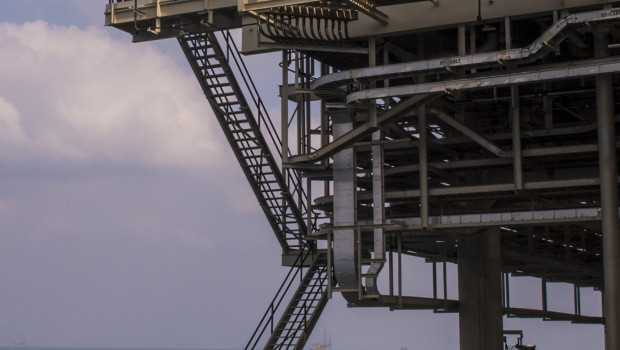Oil prices spike following shock Opec cut

Oil prices surged on Monday after a surprise decision by Opec+ nations to voluntarily cut production.
BP
381.25p
12:54 24/12/24
Exxon Mobil Corp.
$106.36
08:05 26/12/24
FTSE 100
8,136.99
12:59 24/12/24
FTSE 350
4,491.87
12:54 24/12/24
FTSE All-Share
4,449.61
13:14 24/12/24
Oil & Gas Producers
7,727.62
12:54 24/12/24
Shell
2,429.00p
12:40 24/12/24
Following an unscheduled meeting at the weekend, members of the Opec oil cartel and its allies - known collectively as Opec+ - announced oil production cuts of more than 1m barrels a day, starting in May and lasting until the end of the year.
In addition, Opec+ member Russia said it would extend its production cut by 500,000 barrels per day until the end of the year.
The surprise announcement sent oil prices soaring, and by 0945 BST on Monday benchmark Brent crude was up 5% at $84.23 while West Texas Intermediate was 5% stronger at $79.79 a barrel.
Shares in oil majors were also trading higher, with BP up 4% at 532p and Shell ahead 4% at 2,398.4p. In the US, ExxonMobil was up 3% in pre-market trading.
Oil prices surged last year in response to Russia’s invasion of Ukraine, and while they are now back to levels seen before the conflict began, many - including the US - want to see an increase in output, to help push prices lower still. Soaring energy prices have been one of the key drivers behind the global spike in inflation and cost of living crisis.
However, it is thought that Saudi Arabia, Opec’s de facto head, wants to boost prices over fears demand will falter. Prices fell sharply last month on concerns that the collapse of Silicon Valley Bank and forced takeover of Credit Suisse were the start of a wider banking crisis, which in turn would lead to a drop off in demand.
Danni Hewson, head of financial analysis at AJ Bell, said: "The world needed a spike in oil prices like a hole in the head. Just as one of the pinch points in the global economy had started to ease, Saudi Arabia and its counterparts in Opec have unveiled a surprise output cut.
"The decision represents a flexing of its muscles and potentially a pre-emptive move as it anticipates a drop off in crude demand relating to the collapse of SVB and ensuing banking crisis."
Ipek Ozkardeskaya, senior analyst at Swissquote Bank, said: "Officially, the cartel wants price stability in oil markets. But in reality, they simply want higher prices.
"Fair enough. From July, combined with Russia’s own output cut, as a result of a response to Western sanctions, the amount of oil barrels available for the global markets will be around 1.6m less. That’s enough to revive geopolitical tensions with the US, which already called the decision ill-advised, and more than enough to spur inflation worries across the world."